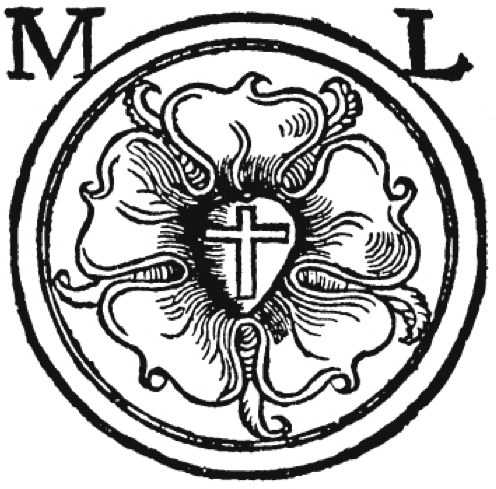The Christian in Community
“What do you have that you did not receive?” Paul asks the Corinthians (1 Corinthians 4:7). We confess God as Creator not only because it is true but because it identifies the ground reality of our lives: We are creatures. We have our bodies and souls with all their powers, and the daily bread to sustain them, as gifts of God. We have Christ our Savior because God “gave His only-begotten Son” (John 3:16) to atone for sinful men. We have the Holy Spirit because God “sent the Spirit of His Son into our hearts” (Galatians 4:6) through His Word and sacraments.
“What do you have that you did not receive?” Whatever our children—the next generation—have from us, they have as an inheritance, as gifts received and in turn handed down from their fathers. This is true in church as it is in the home. “I delivered to you as of first importance what I also received” (1 Corinthians 15:3), that is, the entire Gospel which we confess in our creeds. “I re-ceived from the Lord what I also delivered to you” (1 Corinthians 11:23), that is, the Lord’s Supper. All good things are from God. “Every good gift and every perfect gift is from above, coming down from the Father of lights” (James 1:17).
One generation receives from God and hands it down to the next generation. Parents today, even congregations, have often focused on handing down financial and other material blessings to the next generation: money, houses, church buildings, and the like. These are important. Of even greater importance is the transmission of knowledge, the wisdom and truth of God’s Holy Word, together with all the knowledge of the world needed to fulfill our godly vocations according to God’s Word. This is a great inheritance!
But we have not always attended to the handing down of “just sentiments,” as C. S. Lewis calls them in The Abolition of Man. We often think about training the next generation in right knowledge and in the control of our various appetites, but have we given the same attention to the rightly ordered emotions and impulses? Lewis reminds us that man is not merely cold reason and the animal-like appetite for food and drink and sex. Our minds rule the conduct of our lives through the “just sentiments” of our hearts.
Consider these examples of proper and right sentiments we want to cultivate in our own hearts and in the hearts of our children. The sentiment fits:
- Suffering in others awakens in us feelings of pity and compassion.
- Beauty stirs up admiration and appreciation.
- Unfairness or injustice provokes just anger and the desire for just recompense. But receiving mercy in judgment awakens mercy in our own hearts.
- The mere mention of fornication or sexual perversion stirs up abhorrence in our deepest emotions.
- Respect and due reverence is the proper emotional posture toward parents, pastors, and other authorities.
- The presence of a child in the womb moves deep feelings of love and protection in the heart of the child’s father and mother.
- Holy things and holy places are received with godly fear and holy love.
Sentiments are just when they fit, when they are appropriate to the value of the matter in consideration. (“If the shoe fits, wear it.”)When the young are taught to have just sentiments, then the truths that undergird these sentiments become “self-evident” as they grow into maturity. They should be able to see and feel in their hearts the truths “that all men are created equal, that they endowed by their Creator with certain unalienable Rights, that among these are Life, Liberty, and the pursuit of Happiness”
(Preamble to the Declaration of Independence). Such truths are self-evident be-cause they have been written and stamped into the creation, into nature itself (Apology XXIII.12). “They show that the work of the law is written on their hearts” (Romans 2:15). The well-trained heart embraces the truth of God’s good law as self-evident.
We must guard and nourish not only the minds but also the hearts of the next generation—and our own. “You shall love the Lord your God with all your heart…” (Deuteronomy 6:5). “Out of the abundance of the heart the mouth speaks” (Matthew 12:34). Much of the danger to the transmission of the inheritance of faith, wisdom, and piety to the next generation is not to the mind so much as to the heart. The electronic media—music, television and movies, social media, images, games, etc.—all want to shape and mold the heart. The dominant culture of our communities and schools is aimed at the heart first of all. Our hearts are sinful by nature (Matthew 15:19), so we are all vulnerable to these attacks. Nevertheless, “Keep your heart with all vigilance, for from it flow the springs of life” (Proverbs 4:23).
We are creatures of God. Even the virtues of our hearts are received from God through the example and teaching of others. “What do you have that you did not receive?” Neither we nor the next generation are self-made—not by evolution, not by our own works, not by some transitioning magic of our own heart or will or applied science. Our humanity is the creation and gift of God. So much of it is handed down to us by godly parents and family, faithful pastors and fellow Christians, and by the just and humane neighborhoods of the world. These com-munities have a sacred trust from God, each in its appointed way, of handing down to the next generation the good gifts of God: “whatever is true, whatever is honorable, whatever is just, whatever is pure, whatever is lovely, whatever is commendable, if there is any excellence, if there is anything worthy of praise” (Philippians 4:8). God grant the fulfillment of this duty in our own hearts and that of the next generation!
REFORMATION 500

Martin Luther is often accused, or credited, with the individualism of the
last 500 years. And it is true that he taught what Holy Scripture teaches, that the justification of the sinner takes place by the faith of that sinner in the satisfaction of God’s wrath in the atoning death of Jesus Christ. What’s more, every Christian is called upon to confess this faith: “Here I stand!”
But Luther is misunderstood. He also taught what the Holy Spirit teaches in His Word, that the justified sinner is incorporated into the church through Holy Baptism and the forgiveness of sins. To incorporate is to bring into a body, to be made the member and partaker of all the treasures and goods of that community. Just as men are born into families, so sinners are born again into the church of the living God as living members of it.
And as the sinner is joined to the church, so local churches are joined to each other through their common doctrine and use of God’s Word. By 1528 Luther would apply this truth to the life of the Lutheran church by proposing regular visitations from qualified pastors and others. The purpose of such visitation was to strengthen and encourage Lutheran pastors and congregations, first in their spiritual labors and afflictions, and second in the physical and financial difficulties of the parishes and their pastors. Our own Synod was founded with this doctrine and practice of visitation, and it is the basis for the Wyoming District’s work.
Luther used this practice earlier in the Lutheran Reformation as he addressed the needs of congregations and combatted the false teachers that had arisen in Lutheran lands. August 21–26, 1524 Luther went on a circuit of visitation to Jena, Kahla, Orlamunde, and Weimar to aid these congregations in understanding and rejecting the errors of Thomas Muntzer and Andreas Karlstadt. We will see Luther’s rejection of their errors in coming months through Luther’s writings.
Luther’s example teaches us to treasure the community of faithful churches and those pastors who are appointed to visit and strengthen them. Luther conducted further visitation tours in January and March, and again in April and May, 1525. Others carried out this task in September 1525.
We can distill two general and related purposes for these visitations. One was to strengthen the wellbeing of the congregations through the teaching and application of God’s Word. The second was to combat error and false teachers with God’s Word and thus remove these evils from faithful congregations. In carrying out this work, the visitors were offering a service of love to the church and were assisting in “maintaining the unity of the Spirit in the bond of peace” (Ephesians 4:3).

